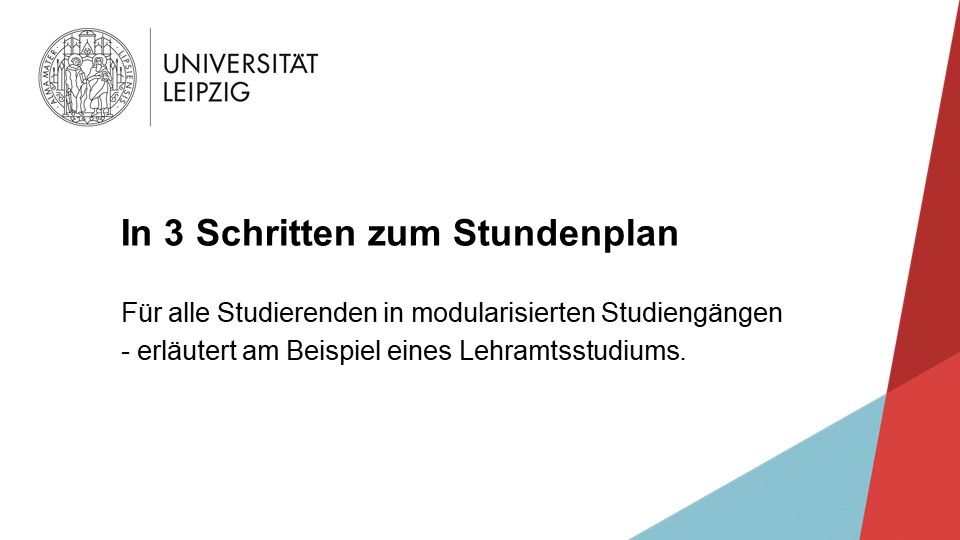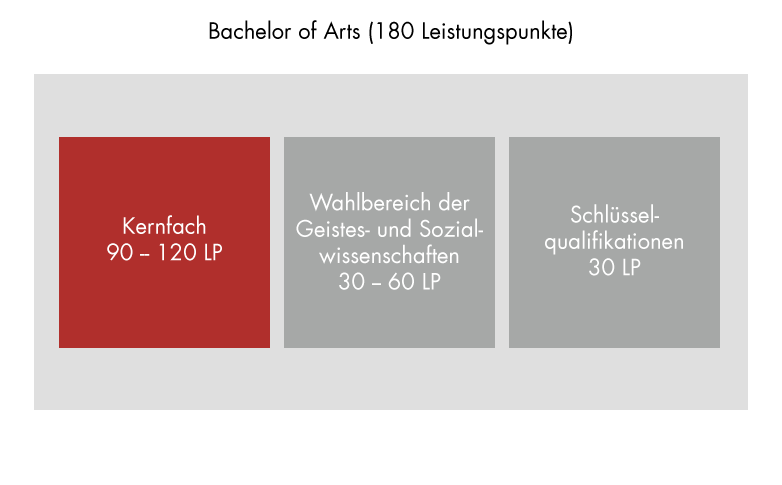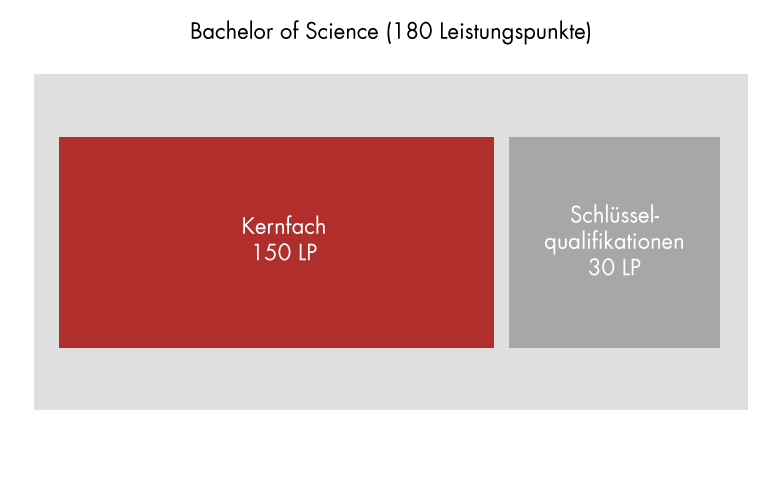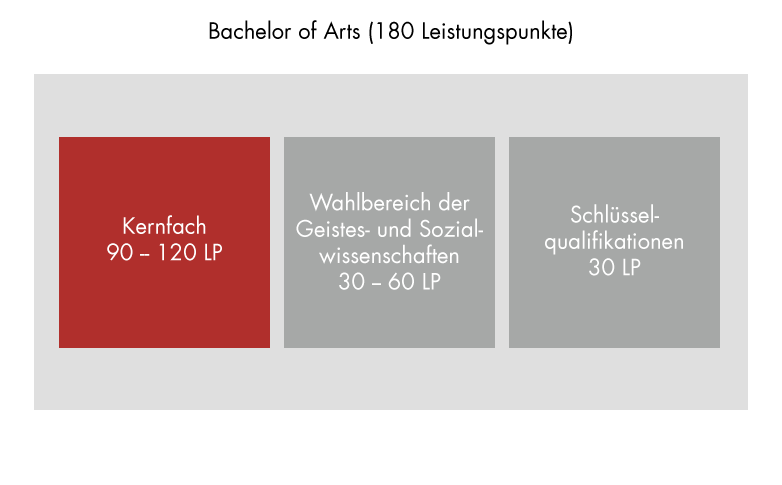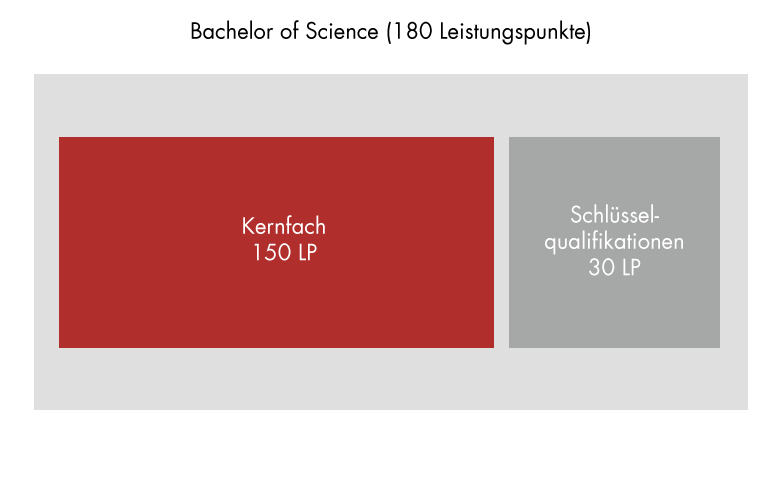A bachelor’s degree is an undergraduate degree and the first professional qualification awarded by higher education institutions. A bachelor’s programme usually lasts six semesters (three years) and leads to a Bachelor of Arts (BA) or Bachelor of Science (BSc).
Information for New Students in 2024
Start your studies well informed. You will find important information, tips and offers on our website:
- Study-ABC: the most important terms for your studies (in German)
- Module enrolment: general information, deadlines, video tutorials, TOOL guide
- Events offered at the start of your studies:
- 30.09. - 04.10.2024, study organisation week: events to organise the start of your studies
- 07.10. - 11.10.2024, introductory week at the start of studies: subject-related introductory events for degree programmes at institutes and faculties, supplementary formats on topics related to studying
- Elective Area in the Humanities and Social Sciences: organisation options, dates and deadlines
- Cross-faculty key qualifications: content and courses offered
Structure
If you decide to study for a bachelor’s degree at Leipzig University, you will study
- a core subject with compulsory modules, compulsory elective modules and the bachelor’s thesis,
- key qualifications,
- and the elective area in the humanities and social sciences, with elective modules from other subject areas (usually only applies to Bachelor of Arts degree programmes). Modules in the elective area in the humanities and social sciences can be studied either as a freely configurable elective area or as part of a fixed elective subject.
Studies cover three areas:
- Core subject with compulsory modules, compulsory elective modules and the bachelor’s thesis
- Elective area with elective modules from other subject areas
- Key qualifications
Your core subject is the degree programme for which you apply. This is also where you write your dissertation, the bachelor’s thesis. Most students earn 90 or 120 credits in this core subject. In addition to this, you have the opportunity to take other subjects – usually 60 or 30 credits’ worth – that do not belong to your core subject. You choose these from the elective area in the humanities and social sciences.
You can choose whether you want to reorganise your freely configurable elective area each semester or choose a fixed elective subject at the start of your studies, which you then study alongside your core subject for the duration of your programme. Most elective subjects are worth a total of 60 credits. Some elective subjects are offered with a total of 30 credit points, making it possible to combine two elective subjects or one elective subject with elective area modules.
Studies cover two areas:
- Core subject with compulsory modules, compulsory elective modules and the bachelor’s thesis
- Key qualifications
Modules
On bachelor’s and master’s programmes, teaching is characterised by modules. Courses such as lectures, seminars and practical courses are grouped together into thematically related blocks known as modules.
Modules end with a module examination. Each module examination counts towards your overall grade. A module examination can consist of one or more individual exams, which take the form of written tests, oral presentations, or other assessed work. These individual exams may involve individual courses from the module or module in its entirety. In some modules, a student’s eligibility to sit an exam is linked to certain prerequisites. Modules are each worth a certain number of credits (usually ten or five), which are awarded upon successful completion of the module examination (minimum grade: 4,0).
Credits
It is recommended that you aim for 30 credits per semester. Credits represent the estimated workload for a module. Grades, on the other hand, provide information as to the quality of the student’s work. Credits are thus a better way of estimating the average workload associated with the student’s performance. This system is designed to make it easier to compare academic achievements between universities.
Degree Types
- Bachelor of Arts (BA) degrees are common in the humanities and social sciences.
- Bachelor of Science (BSc) degrees are awarded in the areas of computer science, economics and management science, sport management and the natural sciences.
A bachelor’s degree is a prerequisite for enrolling on a master’s programme. Doing a master’s degree after completing your bachelor’s is a way to continue studying and enhance your academic expertise in your field. Alternatively, you may want to consider a change of direction by taking up a master’s degree course in a subject not related to your previous studies.






























































